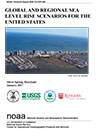 The Florida Climate Institute is a multi-disciplinary network of national and international research and public organizations, scientists, and individuals concerned with achieving a better understanding of climate variability and change. The FCI has ten member universities – Florida Atlantic University, Florida State University, University of Central Florida, University of Florida, University of Miami, Florida A&M, Nova Southeastern University, Florida International University, Florida Institute of Technology, and the University of South Florida. It is supported by relevant colleges, centers and programs at these universities.
The Florida Climate Institute is a multi-disciplinary network of national and international research and public organizations, scientists, and individuals concerned with achieving a better understanding of climate variability and change. The FCI has ten member universities – Florida Atlantic University, Florida State University, University of Central Florida, University of Florida, University of Miami, Florida A&M, Nova Southeastern University, Florida International University, Florida Institute of Technology, and the University of South Florida. It is supported by relevant colleges, centers and programs at these universities.
 NOAA Climate.gov provides science and information for a climate-smart nation. Americans’ health, security, and economic well-being are closely linked to climate and weather. People want and need information to help them make decisions on how to manage climate-related risks and opportunities they face.
NOAA Climate.gov provides science and information for a climate-smart nation. Americans’ health, security, and economic well-being are closely linked to climate and weather. People want and need information to help them make decisions on how to manage climate-related risks and opportunities they face.
 The International Panel on Climate Change (IPCC) is a scientific body under the auspices of the United Nations. It reviews and assesses the most recent scientific, technical and socio-economic information produced worldwide relevant to the understanding of climate change. It does not conduct any research nor does it monitor climate related data or parameters.
The International Panel on Climate Change (IPCC) is a scientific body under the auspices of the United Nations. It reviews and assesses the most recent scientific, technical and socio-economic information produced worldwide relevant to the understanding of climate change. It does not conduct any research nor does it monitor climate related data or parameters.
 “Planning for the impact of sea-level rise on U.S. national parks” by Maria Caffrey and Rebecca Beavers. Published Sept. 3, 2013 in the National Park Service’s Park Science.
“Planning for the impact of sea-level rise on U.S. national parks” by Maria Caffrey and Rebecca Beavers. Published Sept. 3, 2013 in the National Park Service’s Park Science.
 The National Fish, Wildlife and Plants Climate Adaptation Strategy provides a unified approach—reflecting shared principles and science-based practices—for reducing the negative impacts of climate change on fish, wildlife, plants, and the natural systems upon which they depend.
The National Fish, Wildlife and Plants Climate Adaptation Strategy provides a unified approach—reflecting shared principles and science-based practices—for reducing the negative impacts of climate change on fish, wildlife, plants, and the natural systems upon which they depend.
 Global and Regional Sea Level Rise Scenarios for the United States, NOAA Technical Report NOS CO-OPS 083, January 2017
Global and Regional Sea Level Rise Scenarios for the United States, NOAA Technical Report NOS CO-OPS 083, January 2017
